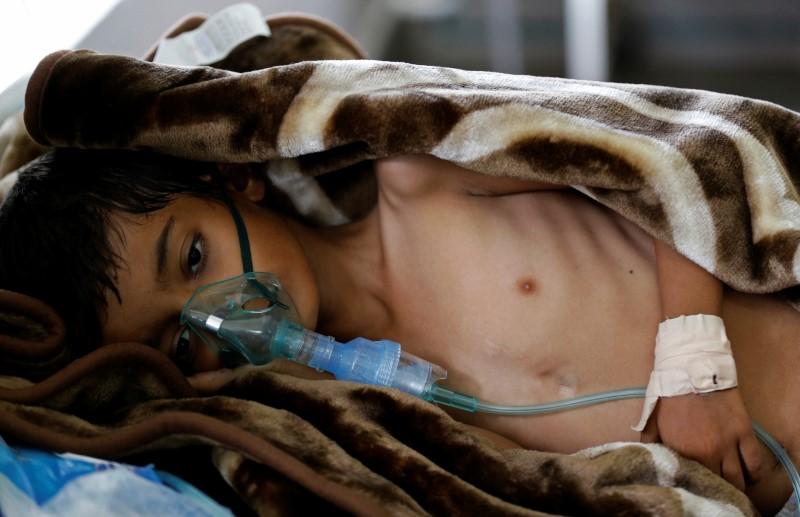
The Sweden initiative marks the first meeting between the two sides since the 2016 breakdown of talks to end the Yemen war, which has claimed more than 10,000 lives since 2015 when Saudi Arabia and its allies joined the government's fight against the Iran-backed rebels.
The conflict has triggered what the UN calls the world's worst humanitarian crisis, with nearly 14 million Yemenis at risk of mass starvation as violence, poverty, disease and blockades bring the impoverished country to its knees.
The talks are not aimed at finding a solution to the Yemen conflict, according to the UN.
Instead, they are focusing on a few key areas, the humanitarian corridors, a prisoner swap, the reopening of the defunct Sanaa international airport and the fate of Hodeida, the rebel-held Red Sea city that has proved an impasse in the talks.
Speaking on condition of anonymity, a UN source at the talks in the rural village of Rimbo said both the government and rival rebels had indicated they were willing to hold further talks in coming months.
An international campaign has been mounting to deescalate hostilities in Yemen, where Saudi Arabia and Iran - archrivals both facing pressure by western states- back opposite sides.
"If we do not get the support of key states, then there will not be a solution," said the UN source.
Ambassadors of states with embassies in Yemen, including Saudi Arabia, Britain and France, are also present in Rimbo, although they have not attended any of the talks, according to UN sources.
Legislators in the United States, along with France and Britain, a major arms supplier to Saudi Arabia, have grown increasingly critical over US support for the Saudi-led military campaign in Yemen after the murder of Jamal Khashoggi.
Khashoggi, a Saudi Arabian columnist for the Washington post and critic of the kingdom's powerful Crown Prince Mohammed bin Salman, was dismembered inside his country's consulate in Istanbul on October 2.
The Senate may vote next week to force the US to end its military support to the Saudi-led coalition in Yemen. US President Donald Trump has dismissed the notion of ending arms sales.
While the government and rebels on Sunday ruled out a ceasefire, representatives of both parties said they were open to further negotiations.
"If we leave these consultations having made progress - progress in building confidence and finding a framework - we can hold a new round of talks" in the coming months, Houthi spokesman Mohammed Abdelsalam told reporters.
Yemeni Foreign Minister Khaled al-Yamani on Saturday proposed that the government-controlled city of Aden could be used as the location for the country's main airport, with rebel-held Sanaa international turning into a domestic terminal - a proposal swiftly dismissed by the rebels.
But the Yemeni city of Hodeida, home to both a valuable port and frontlines, has proved the "most difficult" issue at the Sweden talks, according to the UN source.
The Houthi rebels seized the Red Sea city of Hodeida, a traditional conduit for 90 per cent of food imports to impoverished Yemen, in a massive territorial takeover in 2014, sparking the intervention of Saudi Arabia and its allies the following year.
Shipments to Hodeida, including humanitarian aid, have been severely restricted by the coalition, which accuses Iran of smuggling arms to the rebels through the port and Sanaa airport. Tehran denies the charge.
Both parties have agreed to grant the UN a supervisory role in the port - but the government demands the rebels withdraw completely, and the Houthis, now ensconced in residential neighbourhoods to fight government forces, have repeatedly refused.
The Saudi-led alliance launched an offensive to retake densely-populated Hodeida in June, sparking fears of a fresh humanitarian crisis in a country already on the verge of famine.

1732849469-0/women-in-male-field-(1)1732849469-0-165x106.webp)















COMMENTS (1)
Comments are moderated and generally will be posted if they are on-topic and not abusive.
For more information, please see our Comments FAQ